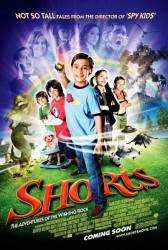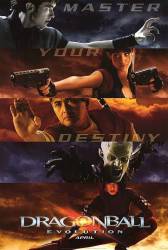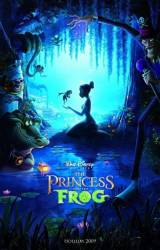
Plot hole: When Charlotte kissed Naveen at the end, she should've turned into a frog as well because she was no longer a princess.
Suggested correction: When ordinary people kiss a frog, they don't transform into anything. (Perhaps they die from infection after a few days.) Charlotte was just an ordinary person. Tiana was chosen. She wished upon the star. Naveen and the consequences of kissing Naveen were a result of Tiana's wish.
Suggested correction: How? She was no longer a princess.
Tiana turned into a frog because she kissed Naveen without being a princess, so Charlotte should have, too.
Tiana broke the talisman that the voodoo man had, thus breaking any more frog-turning spell. I know Mama Odie said that Naveen and Tiana broke the spell when they got married, but Dr. Facilier was still responsible for the spell in the first place, and he died, so there's that.
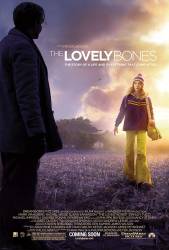
Plot hole: So he needed the help of a big strong burly guy to flip the safe with the body, end over end to the pit, but he somehow was able to easily get it out of his basement and into the back of his car by himself?
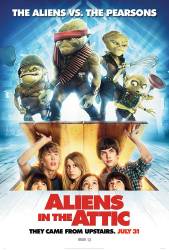
Plot hole: In the scene where Ricky is fighting granny, she elbows Ricky in the neck and knocks off the alien control sensor. But later when he goes to the other girl's house, he is once again controlled by the alien joypad (without a sensor on his neck). (01:02:15 - 01:19:40)

Plot hole: Ben demonstrates for the FBI that he has not only invented gear that allows animals to speak English, but trained ordinary rodents to a level on par with Navy Seals. The FBI laughs at him and cuts his funding, a plot hammer so G-Force can escape and save the day. Are they kidding!?! Even if the info G-force brought back is wrong, Ben has created agents that can repeatedly infiltrate almost literally any place on Earth. No government agency would pass up such a huge intelligence gathering tool.
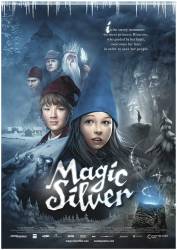
Plot hole: In the series we learn that these creatures take a lot longer than us humans to grow up and that they live a lot longer. They mention that the children are about 900 years old, so a grown-up would be more than 1000 (probably 2000). The series is set around our time (1990s/2000s) and Fjellrose and Erke are very old. Yet the film is set about 100 or 200 years ago, you can tell by the way the humans are dressed and the way their houses are built etc. So Fjellrose and Erke should still be grown up, but they are young children. If they are only 100 to 200 years younger, then they should be much older in the film or much younger in the series.
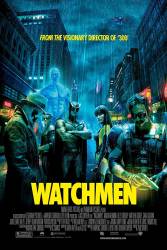
Plot hole: Although this film is a virtual jigsaw puzzle of flashbacks, the dynamic between Dan, Laurie and Rorschach pretty much defines the movie's continuity in the present. However, when Rorschach is framed for murder and arrested, he goes directly to a maximum-security prison, apparently without trial, conviction or sentencing (all of which would require months of due-process, at least). Even if this lapse of time is some sort of artistic device to rapidly advance Rorschach's story, there is no corresponding lapse of months in the relationship between Dan and Laurie, which runs parallel with Rorschach's story. Either there is no due process for Rorschach in this story, or there is a glaring plot hole.
Suggested correction: Rorschach was a famous and dangerous outlaw. We are talking about an alternate 80's here with Nixon as president and a nation-wide ban on masks (the Keene Act). Rorschach probably faced the death penalty for his long list of crimes, besides the murder he was finally captured for (not to mention to handful of cops he seriously injured whilst trying to evade capture). I don't think it's strange that his trial was quick or not fully by the book. They made sure he was locked away fast and quietly. The justice system probably works a lot faster in a world of masked vigilantes.
Yes, Rorschach was a vigilante; but, before masked superheroes were outlawed, Rorschach was also responsible for sending dozens (if not scores) of far worse criminals to prison, thus benefitting society. This much is stated in the film. His contributions to justice would certainly carry weight, and testimony in his favor would have to be considered in any legal proceedings against him. Also, after his capture, authorities were still trying to assess his mental state, which implies that some sort of due-process was still in place. Rorschach should have received a months-long trial, at the very least.
To be fair, the original, Hugo Award-winning "Watchmen" graphic novel makes the same continuity leap when it comes to Rorschach's fate. Rorschach keeps a secret diary that dates everything, but it egregiously skips over his trial and sentencing, even though the relationship between Dan and Laurie remains consistent. So, we can say that the movie is faithful to the novel, but the novel itself is flawed with a gaping plot hole.
The cops of that city don't care about his past deeds, which includes dropping the body of a criminal in front of the police station with the message "Never." They don't like him. Not even his colleagues liked him. That was a long time ago too, he's been the sole masked vigilante for a long time and I bet the cops just started disliking him more and more for his antics. Thus, a quick trial.
